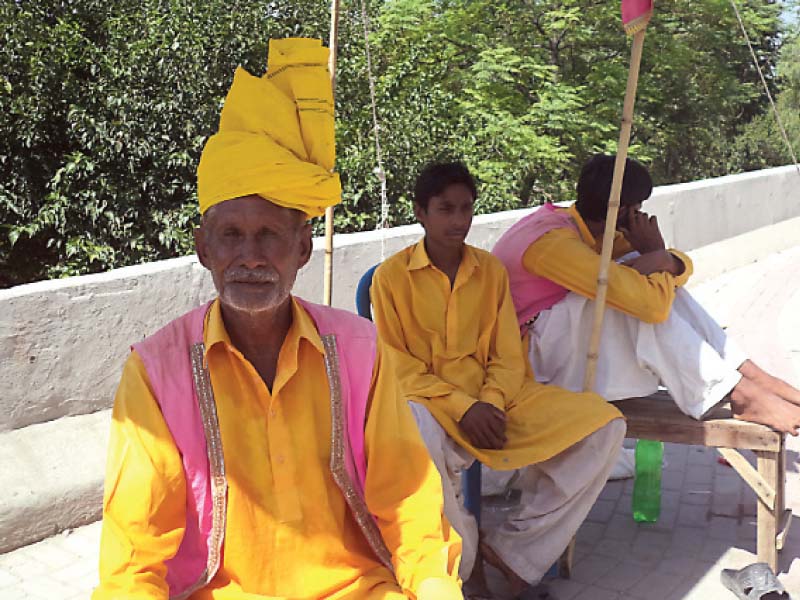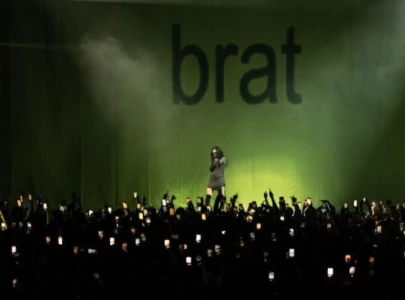
These performers, in spite of usually being treated as a social outcast, continue to entertain thousands and keep traditional music alive. Many live off bare minimum wages and find it hard to make ends meet.
The dhol walas are usually spotted around roundabouts and along key arteries in the cities, waiting to be hired for various events. In Rawalpindi, the performers are usually spotted with their makeshift setups on footpaths along the Benazir Bhutto Road.
Ghulam Jaffar, 55, sitting on a broken chair under a shade at Mareer Chowk, is among them. He has performed at various events across the province in the last 44 years.
He specialises on double-headed drums, and can play shehnai (a wind instrument). Jaffar is also an expert bhangra (folk dance) performer.
He started playing drums when he was only 12 in his native Jhang, and for the last 25 years, he has been entertaining people in Rawalpindi. Jaffar spent nearly 19 years working in Lahore and Sialkot.
He told The Express Tribune his father and grandfather taught him how to play the shehnai and the drum.
Jaffar says the street performer’s work never gets its due recognition. However, he says he has no regrets: “God always blessed me with what I didn’t deserve.”
His worn-out waistcoat and torn kurta tells a different story. His life has been tough.
Jaffar said that managing bread and butter for the whole family was getting increasingly difficult with every passing day due to the rising inflation. “Politicians are not interested in solving the problems of the poor, they are interested in securing power,” he shared.
Jaffar performs in a group named “Sabir Ali and Attaullah Dhol Master Group”. He has also performed in Azad Jammu and Kashmir, Mansehra and other parts of the country.
He waits for customers from 10am till 10pm, no matter how scorching hot or biting cold the weather is. Living in a rented room, Jaffar shares the accommodation with his three sons, who work with him at big events. To supplement their income, his sons Sabir, Ali, and Attaullah also work as rickshaw drivers.
“Weekends and winters are the best time for us,” he said, adding that “sometimes we return with empty pockets, at others with Rs10,000 or more,” Jaffar said.
Published in The Express Tribune, November 25th, 2015.




1719660634-1/BeFunky-collage-nicole-(1)1719660634-1-165x106.webp)





1724249382-0/Untitled-(640-x-480-px)1724249382-0-270x192.webp)






COMMENTS
Comments are moderated and generally will be posted if they are on-topic and not abusive.
For more information, please see our Comments FAQ